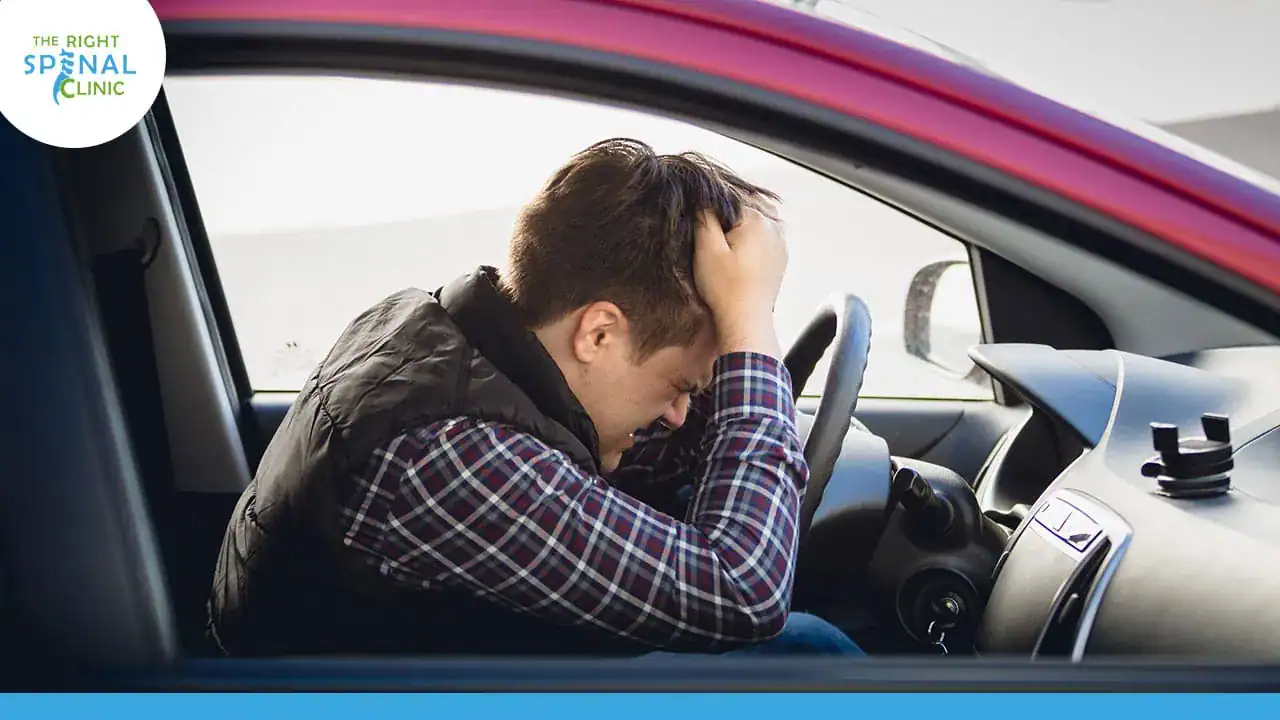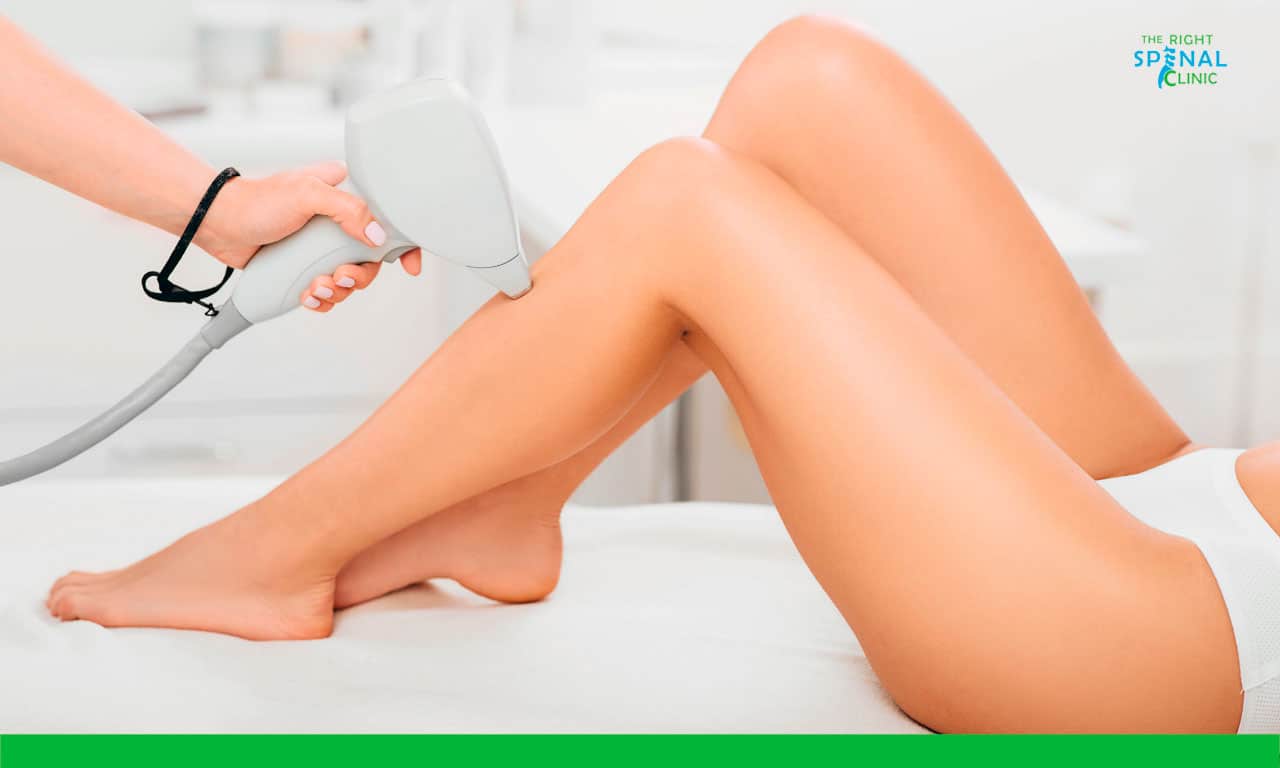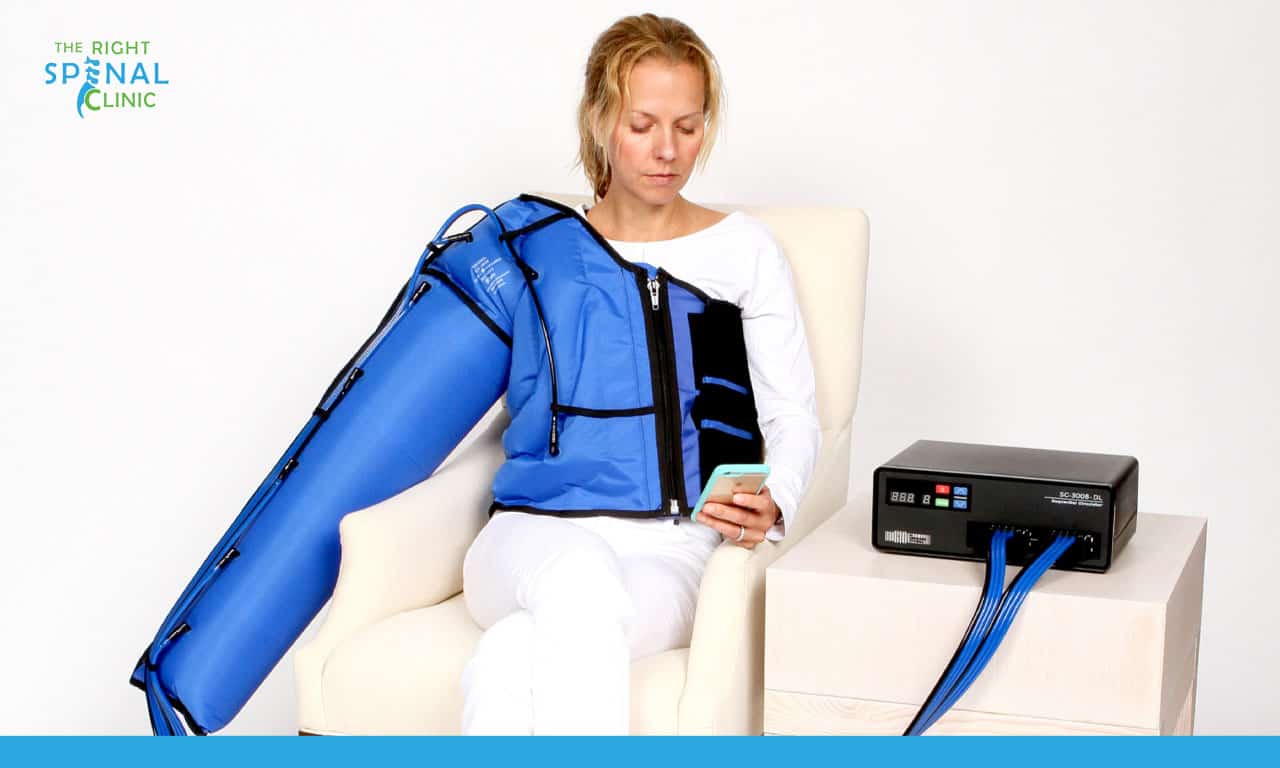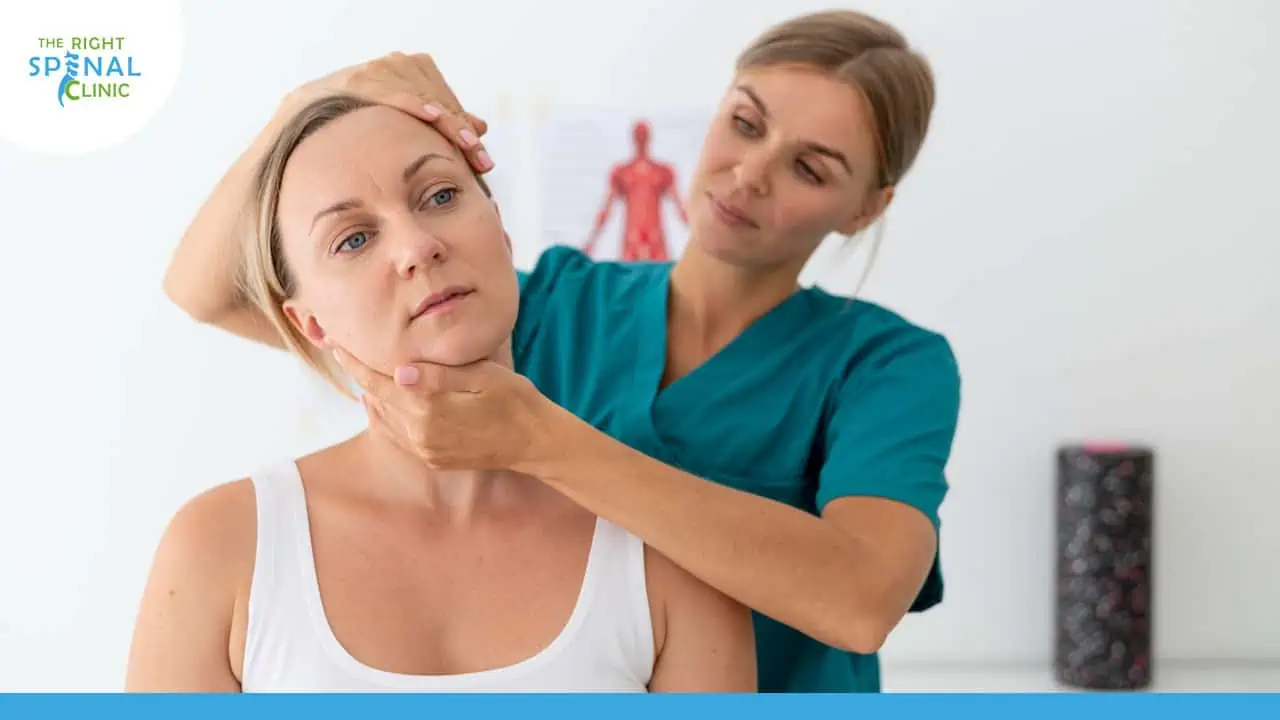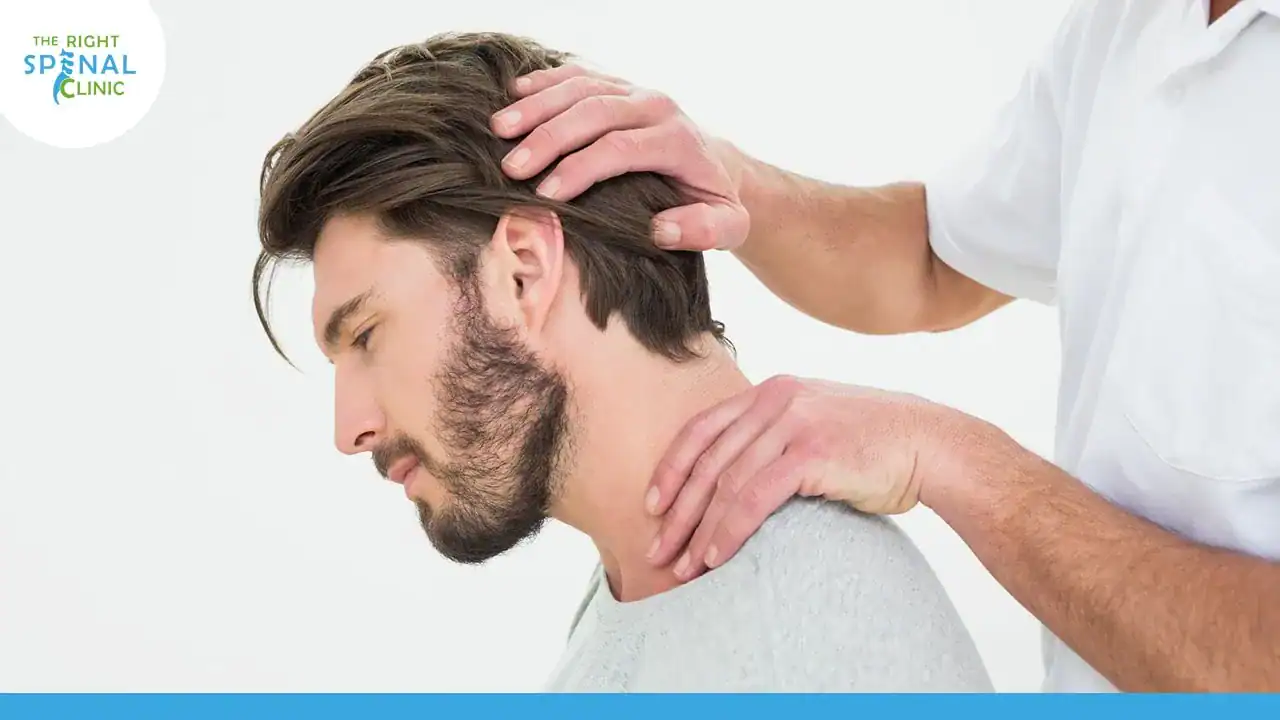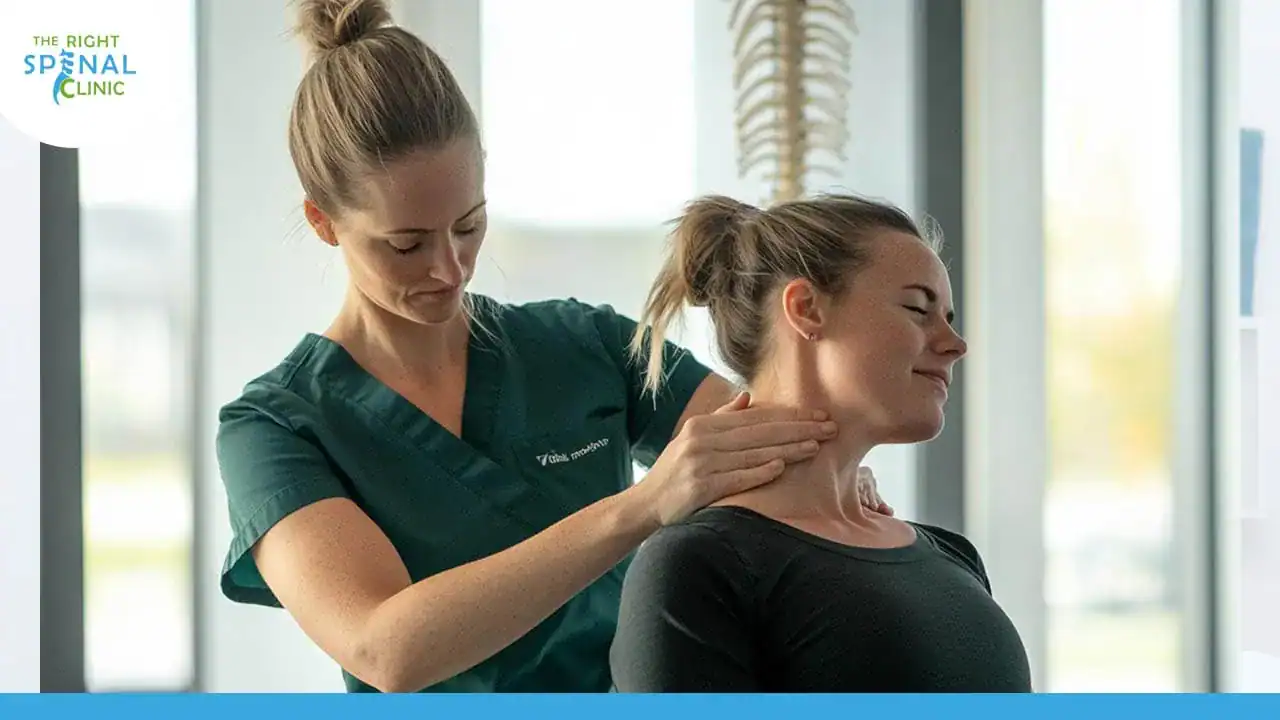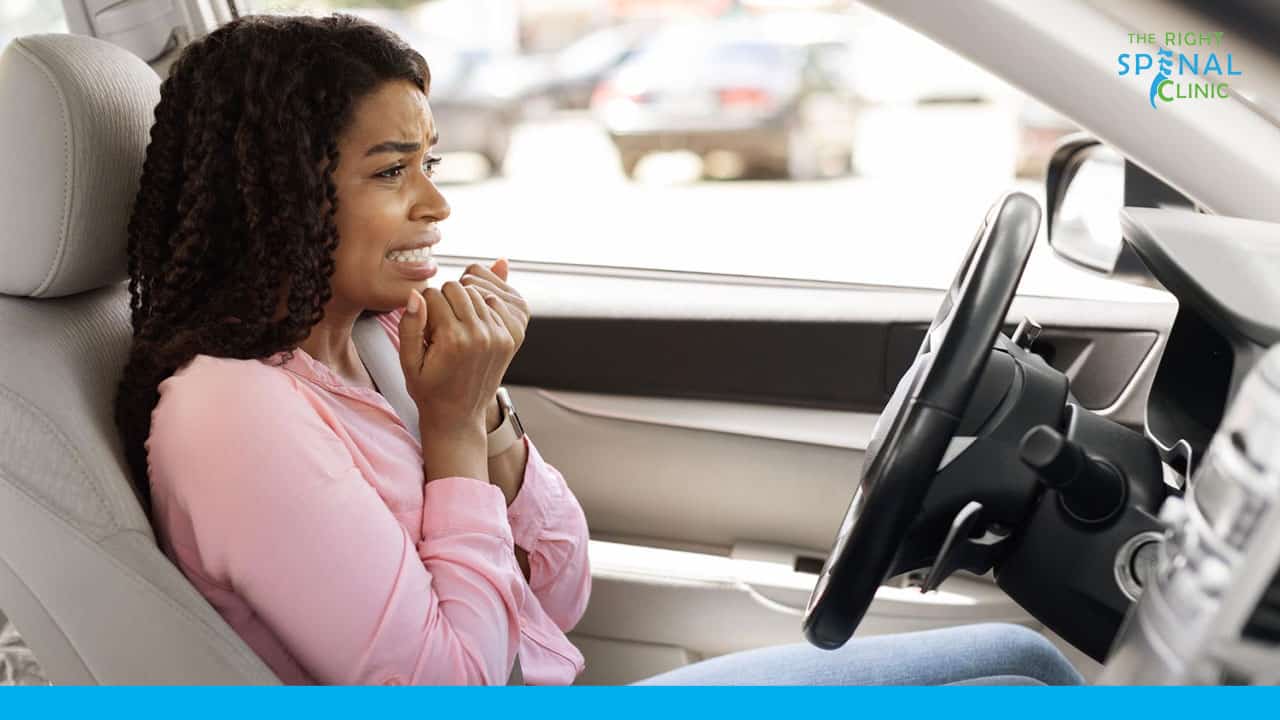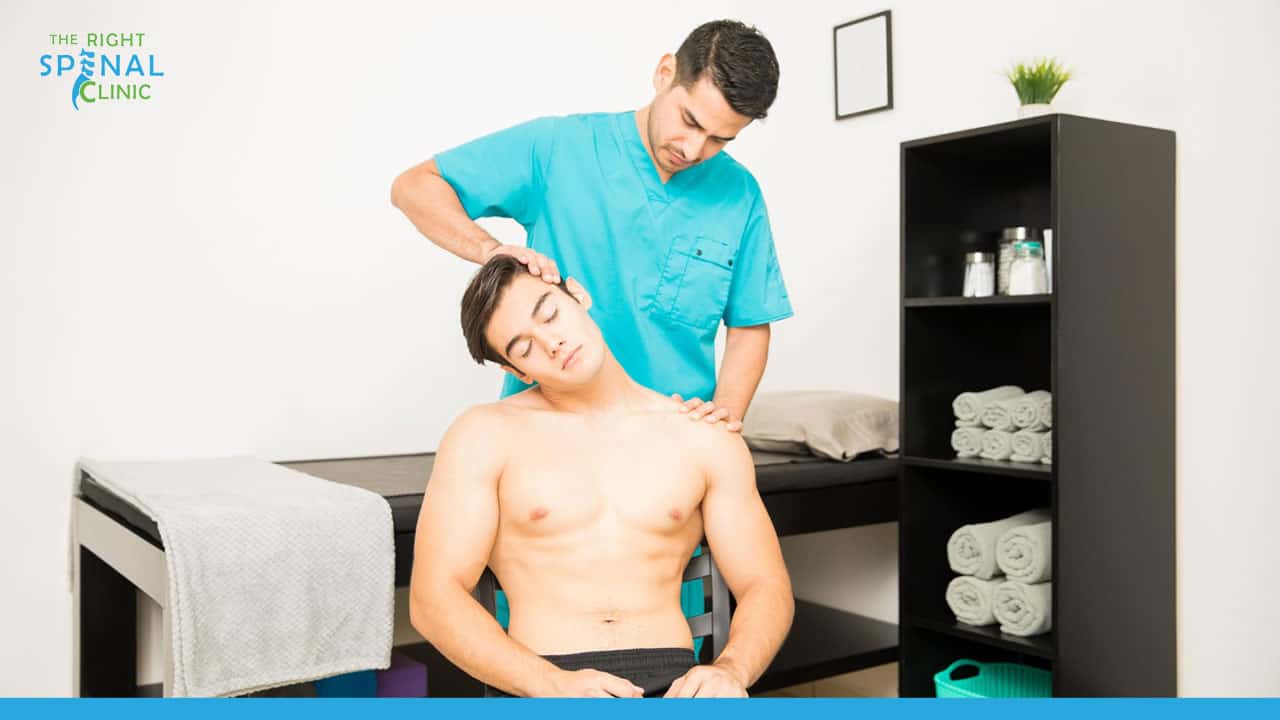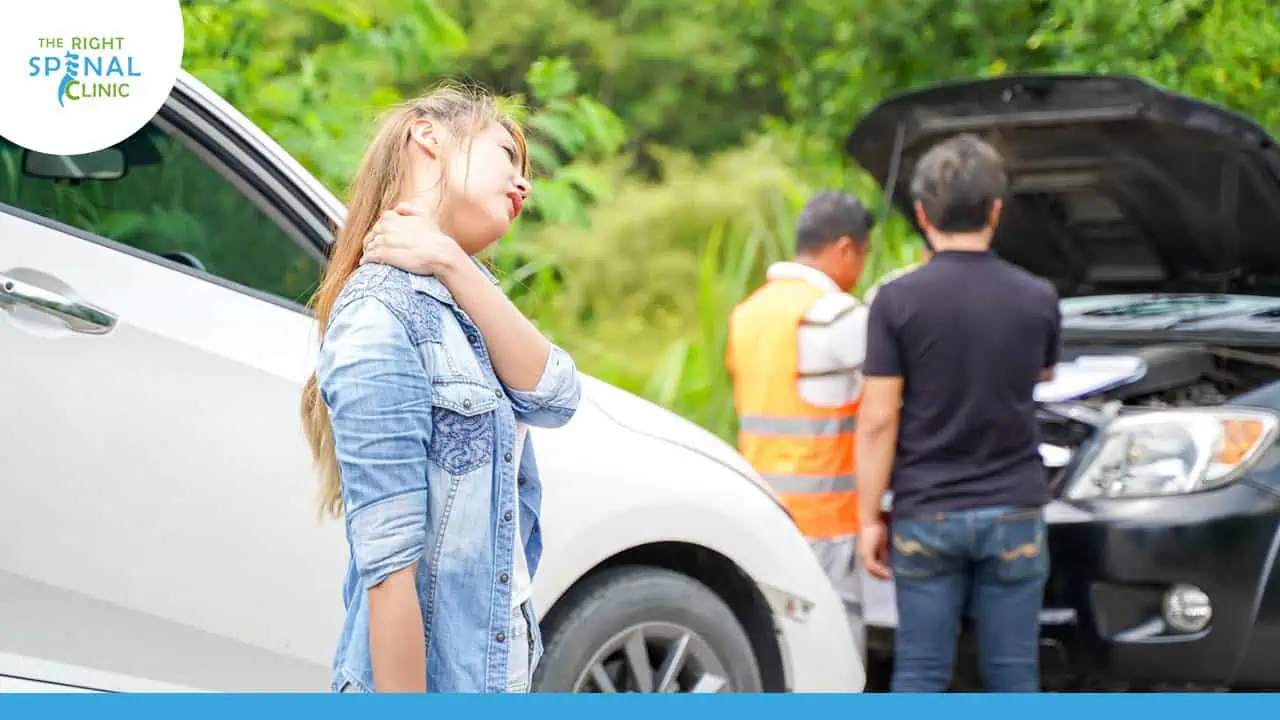
The aftermath of a car accident can be a whirlwind of emotions, paperwork, and physical aches and pains. Even if you walk away without any visible injuries, it's common to experience soreness, stiffness, and even sharp pains in the days and weeks that follow. At The Right Spinal Clinic, we understand the unique challenges that auto accident victims face. Our team of experienced chiropractors, massage therapists, and physical therapists is dedicated to helping you recover from your injuries and get back to living your life to the fullest.
How Long Is Pain After a Car Accident Normal?
Pain after an auto accident is incredibly common, but its duration varies greatly depending on the injury's severity. Typically, expect soreness for a few days to six weeks for car accident muscle pain and minor soft tissue injuries like muscle strains, shoulder pain, or a whiplash injury. These usually respond well to rest, ice, and over-the-counter pain medication. However, more severe injuries like fractures, spinal cord injuries, a herniated disc, or internal damage can take months or years to heal fully. Remember, delayed pain can also occur, so always seek medical attention after an accident, even if you feel fine initially. A doctor can properly assess your injuries and ensure you receive the right care for a smooth and complete recovery.
Seek Medical Treatment After a Car Accident
Being involved in a car crash is a jarring and often distressing experience. While you might initially feel relatively unharmed, it's crucial to understand that auto accident injuries can manifest in subtle ways, sometimes even days or weeks after the initial impact. To ensure your well-being and prevent long-term complications, seek immediate treatment after an auto accident.
1. If Your Headache Will Not Go Away
Headaches are a common car accident complaint, often attributed to whiplash or muscle strain. However, a persistent headache, especially one that worsens over time, could indicate a more serious injury like a concussion or even internal bleeding. Delaying medical evaluation puts you at risk for potential neurological damage, so don't hesitate to seek professional help if your headache isn't resolving.
2. If Your Pain is Sharp and Debilitating
Sharp, severe pain anywhere in your body after a motor vehicle accident is a red flag. This could signify serious physical injuries such as bone fractures, ligament tears, spinal column injuries, or internal injuries. Ignoring such pain symptoms can lead to delayed diagnosis and treatment, potentially aggravating the underlying injury and impacting your recovery. A medical professional can accurately assess the source of your pain and recommend the appropriate treatment plan.
3. If You Feel Weakness in Your Extremities
Experiencing weakness, numbness, or tingling in your arms or legs after an auto accident warrants immediate medical attention. These symptoms could be indicative of spinal cord injury, nerve damage, or even compartment syndrome, a potentially life-threatening condition. Seeking prompt medical evaluation ensures timely intervention and minimizes the risk of permanent neurological damage.
4. If Your Pain Gets Worse, Not Better
While some pain after a car accident is expected, it should gradually improve with time. If your pain is intensifying or spreading, it's a sign that something isn't right. This could be due to soft tissue injuries developing into something more serious or a sign of internal bleeding. Don't wait for the pain to become unbearable – consult a doctor immediately to get proper diagnosis and treatment.
5. If Your Pain Does Not Go Away After Six to Eight Weeks
Even seemingly minor motor vehicle accident injuries like muscle strains or whiplash should start healing within a few weeks. If your pain persists beyond six to eight weeks, it's crucial to seek medical attention again. This could point to chronic pain conditions or underlying issues that require specific treatment strategies. Remember, early intervention is key to preventing long-term pain and managing its impact on your life.
6. If You Start Getting Confused or Disoriented
Following a car accident, experiencing confusion, memory loss, or disorientation could be signs of a traumatic brain injury (TBI). Even mild TBIs can have serious consequences if left untreated. If you notice any changes in your mental clarity or cognitive function, seek immediate medical attention. A doctor can perform necessary assessments and recommend appropriate treatment to minimize potential long-term effects of traumatic brain injuries.
7. If You Start Experiencing Problems With Your Vision or Hearing
Vision or hearing problems after a car accident can be caused by head injuries, nerve damage, or other complications. Don't dismiss these symptoms as temporary – they could indicate serious injuries requiring prompt medical intervention. A thorough evaluation by a healthcare professional can determine the underlying cause and recommend the best course of action for preserving your vision and hearing.
8. If You Have Chest or Abdominal Pain
Any chest or abdominal pain following a car accident should be taken seriously. These symptoms could signify internal injuries, such as organ damage, bleeding, or even a ruptured spleen. Delaying medical attention in such cases can have critical consequences. If you experience any internal pain after an auto accident, seek immediate medical evaluation at the nearest emergency room.
9. If You Start Getting Increasingly Drowsy
Excessive drowsiness or fatigue after a car accident can be a warning sign of internal injuries, head trauma, or even blood clots. While some post-accident fatigue is normal, a progressive increase in drowsiness warrants immediate medical attention. Don't ignore this symptom, as it could point to potentially life-threatening conditions.
Remember, seeking medical treatment after an auto accident is crucial, even if you feel relatively unharmed. Many auto accident injuries manifest gradually, and delaying diagnosis can have serious consequences. By being proactive and consulting a medical professional, you ensure your well-being and receive the necessary care to prevent future complications.
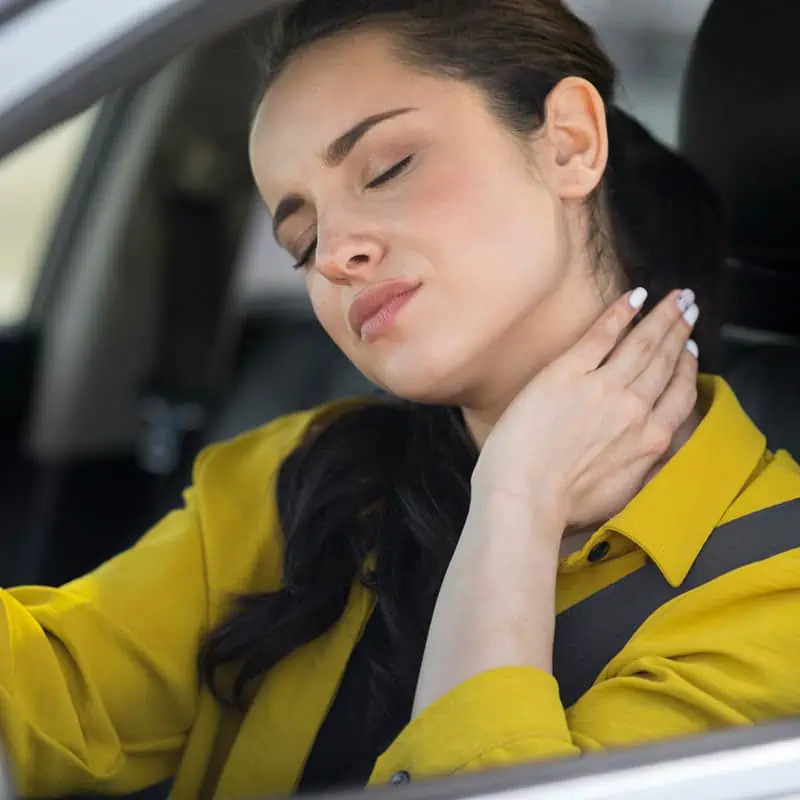
How to Deal with Pain After a Car Accident
The aftermath of a car accident can be physically and emotionally jarring. While you might initially brush off any aches and pains, muscle soreness and discomfort following a collision are very common. Fortunately, several self-care strategies and professional treatments can help alleviate this pain and promote efficient recovery.
Understanding Muscle Pain After a Car Accident:
Car accidents, even minor ones, can cause significant strain and trauma to your muscles. The sudden impact can lead to:
- Muscle tears and strains: These occur when your muscles are stretched beyond their normal range of motion, resulting in microscopic tears or inflammation.
- Whiplash: This neck injury caused by forceful back-and-forth movement can trigger muscle spasms and stiffness in your neck and shoulders.
- Soft tissue injuries: Bruises, sprains, and contusions involving muscles, tendons, and ligaments can also contribute to pain and discomfort.
Muscle Pain Treatment Tips:
Following these tips can help manage muscle pain after a car crash:
Prioritize Rest:
Your body needs ample rest to repair damaged tissues and heal properly. Aim for at least 7-8 hours of sleep each night, and avoid strenuous activities that could aggravate your muscles. Listen to your body and take breaks whenever you feel pain.
Explore Physical Therapy:
Physical therapy plays a crucial role in muscle recovery after a car accident. A qualified therapist can assess your specific injuries and design a personalized exercise program to improve flexibility, strengthen muscles, and restore proper movement patterns. These exercises can not only manage pain but also prevent future injuries.
Consider Massage Therapy:
Professional massage therapy can help loosen tight muscles, improve blood flow to injured areas, and reduce pain. Targeted massage techniques can address specific muscle groups and trigger points, promoting relaxation and faster healing.
Explore Chiropractic Care:
Chiropractic adjustments can address misalignments in your spine and joints that may be contributing to muscle pain. By correcting these imbalances, chiropractors can help improve your posture, reduce muscle tension, and alleviate discomfort.
Remember, these tips are not a substitute for professional medical advice. Always consult your doctor after a car accident to receive a proper diagnosis and discuss the best treatment options for your specific case. Early diagnosis and intervention can significantly impact your recovery timeline and help you manage pain effectively.
By prioritizing self-care and seeking professional help when needed, you can overcome muscle pain after a car accident and regain your strength and flexibility. Remember, recovery takes time and patience, so be kind to yourself and listen to your body's needs.
My Pain Came Out of Nowhere! Delayed Symptoms
It's unsettling to experience pain that seemingly appears out of thin air, especially days or even weeks after an event you thought you were fine from. It's natural to wonder, "Where did this come from?" and "Is something seriously wrong?"
The good news is, delayed symptoms after an event aren't necessarily a sign of something dire. It's actually quite common for certain injuries or conditions to take some time to manifest their full range of symptoms. This can happen for several reasons:
- Underlying tissue damage: Sometimes, injuries like muscle strains or tears can initially feel mild, with the full intensity of pain gradually setting in as inflammation develops.
- Nerve sensitivity: After an event, nerves can become hypersensitive, amplifying pain signals even for minor injuries.
- Adrenaline masking: The body's adrenaline rush during an event can temporarily mask pain, allowing symptoms to surface later.
- Psychological stress: The emotional and mental stress of an event can amplify pain perception and exacerbate existing aches.
If you're experiencing delayed pain, it's important to:
- Reflect on the event: Try to recall any potential injuries you might have sustained, even seemingly minor ones.
- Pay attention to the pain: Note the location, intensity, and character of the pain. Does it worsen with movement, specific positions, or certain activities?
- Consider self-care: Gentle stretching, pain-relieving ointments, and adequate rest can help alleviate mild pain temporarily.
- Seek medical advice: If the pain is severe, persistent, or interferes with your daily life, consult a healthcare professional. They can assess the cause of your pain and recommend appropriate treatment.
Remember, delayed symptoms don't always indicate a serious problem. However, it's always better to err on the side of caution and seek professional guidance if your pain is concerning. By doing so, you can ensure timely diagnosis and appropriate management, promoting a swifter and smoother recovery.
Seek Medical Attention, Even if You Feel Fine:
Regardless of how you feel, it's crucial to seek professional medical evaluation after a car crash. A doctor or chiropractor can perform a thorough examination to identify any hidden injuries and ensure you receive the proper care.
In addition to the points mentioned above, remember to be mindful of other common car accident injuries and their associated symptoms:
- Whiplash: Neck pain, stiffness, headaches, dizziness
- Facet joint injuries: Back pain, radiating pain, difficulty moving
- Muscle spasms: Tightness, pain, limited range of motion
- Herniated discs: Radiating pain, numbness, weakness
- Pinched nerve: Tingling, numbness, weakness in specific areas
- Seat belt burns: Redness, swelling, blistering
- Steering wheel injuries: Hand, arm, and wrist pain
- Post-traumatic stress disorder: Increased anxiety, exaggerated startle, intrusive thoughts or avoidance of thoughts about the accident, numbing of emotional responsiveness, irritability, or disturbed sleep.
If you experience any of these symptoms, or any other concerning signs after a car accident, don't hesitate to seek medical attention. Early diagnosis and treatment are key to a full and speedy recovery.
If You Are Sore After a Car Accident, The Right Spinal Clinic Can Help
If you've been in a motor vehicle collision, The Right Spinal Clinic can help. We can help you recover from muscle aches, neck pain, or spinal injury. Our physical therapist and medical team will work with you to develop a personalized treatment plan that addresses your specific needs. We are committed to providing you with the highest quality care in a compassionate and friendly environment.
Don't suffer any longer. Contact The Right Spinal Clinic today and let us help you get back to feeling your best. Call us at (813) 392 2164 or visit our website at trspinalclinic.com to schedule your consultation.
FAQ: Recovering from Car Accident Pain at The Right Spinal Clinic
Being involved in a car accident can leave you with a whirlwind of emotions and, unfortunately, often some physical discomfort too. At The Right Spinal Clinic, we understand the anxiety you might have about recovery and how long it might take to feel your best again. To address some of your common questions, we've compiled this FAQ to help you navigate the recovery process with confidence.
When Will My Car Accident Pain Fade Away?
Car accident pain varies for car accident victims, depending on injury type, health, and treatment. While most pain fades within 6-8 weeks with proper care, some take longer. If your pain is severe, worsening, or hindering daily life, consult your doctor or The Right Spinal Clinic for a personalized recovery plan. We'll assess your injury and help you get back on track.
It's Been Weeks, and I'm Still in Pain. What Should I Do?
Lingering car accident pain after weeks? It's not uncommon but stay in touch with your doctor, stick to your treatment, and consider consulting The Right Spinal Clinic for additional support like chiropractic care or massage. We'll listen to your body and help you heal at your own pace. Remember, recovery takes patience. We're here to guide you back to your life, pain-free.
Recent Posts

